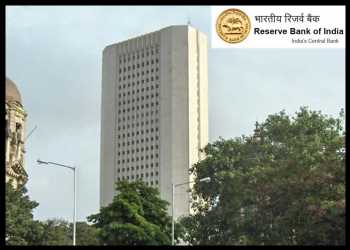RBI Holds Key Interest Rate For Fifth Session; Strikes Hawkish Stance
The Reserve Bank of India left its benchmark rates unchanged for the fifth straight session as policymakers assessed that the impact of the past rate hikes are yet to be fully felt on the economy, and the bank maintained a hawkish stance citing the risk of food price shocks derailing the disinflation process.
The Monetary Policy Committee of the Reserve Bank of India, headed by Governor Shaktikanta Das, unanimously decided to hold the policy repo rate at 6.50 percent.
The MPC will “remain highly alert and prepared to undertake appropriate policy actions, as warranted”, Das said.
“Monetary policy must continue to be actively disinflationary to ensure fuller transmission and anchoring of inflation expectations,” the RBI chief said.
“The rate action so far is still working its way into the economy.”
The RBI lifted the key rate by 250 basis points since May 2022 to put a lid on inflation.
The MPC voted 5-1 to remain focused on the withdrawal of accommodation to ensure that inflation progressively aligns to the target, while supporting growth.
Consumer price inflation is projected at 5.4 percent for 2023-24, unchanged from the previous outlook.
The central bank forecast a pick-up in headline inflation in November and December due to uncertainties in food prices and warned of second round effects from the same.
The unpredictability of domestic food inflation, volatility in crude oil prices and financial markets in an uncertain international environment pose risks to the inflation outlook, the bank noted.
On the growth front, policymakers observed that improved momentum in investment demand as well as business and consumer optimism would support domestic economic activity and ease supply constraints.
The bank lifted its growth outlook for 2023-24 to 7.0 percent from 6.5 percent.
“Against a backdrop of robust economic growth and a renewed rise in food inflation, we doubt the central bank will loosen policy until the second half of 2024,” Capital Economics economist Shilan Shah said.
Source: Read Full Article

